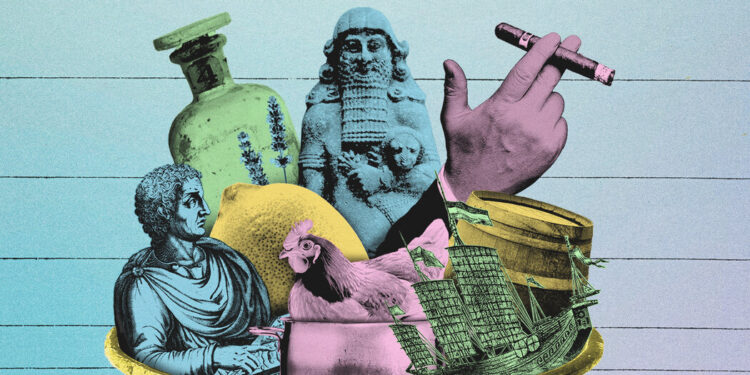Humanity’s oldest epic is a doomed quest for immortality: Around four millenniums ago, the Sumerians told of a Mesopotamian king named Gilgamesh who set out to find life everlasting and briefly located a youth-restoring plant, only to lose it on his way home. Two millenniums later, as the story goes, a Chinese magician named Xu Fu convinced the emperor that there was an elixir granting eternal life across the Yellow Sea. The emperor provided Xu Fu with ships and the 3,000 virgins that the magician claimed were essential to the quest. When the emperor found out he had made little progress, Xu Fu said he also needed an army, which the emperor furnished. Xu Fu set sail, and the emperor never saw him again.
The desire to live forever also animated stories of the Macedonian king Alexander the Great and the Spanish conquistador Juan Ponce de León. They too ended in failure. It’s a lesson that was lost on alchemists, who for centuries sought to create a drink that granted immortality. Among them was Isaac Newton, who went to his grave in the early 1700s believing his alchemical research would one day prove more consequential than his laws of motion.
But even before Newton’s death, Enlightenment thinkers were trading the dream of immortality for the less ambitious goal of living a little longer. According to the Oxford English Dictionary, the word “longevity” first emerged in the 1500s. As did the first longevity diet book, after an Italian nobleman named Luigi Cornaro began to suspect his penchant for alcohol, lavish feasts and late nights was negatively affecting his health. Henceforth, he subjected himself to sparse daily portions, including a lot of eggs, milk, broth and vegetables, and lived into his 80s, when he wrote of his eating habits in “Discourses on a Sober Life.” Its advice proved arguably better than that of many of its successors, among them the ill-advised American offerings “Meat for Every Occasion” and “Calories Don’t Count.”
Cornaro had stumbled upon the modern notion of caloric restriction, a practice that researchers have since shown increases the life spans of dogs, mice, monkeys, worms and — according to one large study — maybe even humans. But Cornaro also seemingly favored other, less scientific restrictions like abstinence, which he believed would preserve his vitality. He was misguided, but hardly alone. This line of thinking remained in fashion for centuries after his death. In Chicago, one urologist began replacing people’s testicles, including his own, with those of younger men. Nine years later, in 1923, he died at 65.
That same year, the Austrian physiologist Eugen Steinach was trumpeting a new genital surgery to treat the diseases of aging. Among the early recipients of the operation was Sigmund Freud, who nevertheless died of cancer at 83. But the operation, called a vasectomy, lives on, albeit for a decidedly different purpose.






